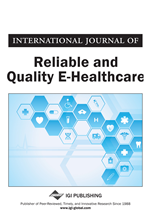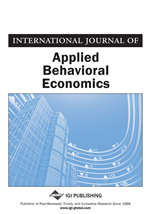Search
Results: 12
Development of a Model for Review Sharing in the Context of Mobile Phone Purchase Amongst Indian Millennials
Online reviews provided important information towards affecting consumers' online shopping behavior. However, little research had been done in India how reviews influence young consumers' online buying behavior and review...
Published by: IGI Global
“They Care, We Share”
The strategic importance of knowledge especially under dynamic business conditions makes it imperative to primarily understand the creation of the knowledge base. This paper employs mixed-method approach to understand the...
Published by: IGI Global
A Differential Epidemic Model for Information, Misinformation, and Disinformation in Online Social Networks
These days the online social network has become a huge source of data. People are actively sharing information on these platforms. The data on online social networks can be misinformation, information, and disinformation....
Published by: IGI Global
The Moderating Effect of Demographics on Patient Adherence and Beliefs
Medication adherence is a complex behavior, and interventions are often used for increasing the adherence of patients. Demographic characteristics are essential for any research. This study tries to find the mediating effect of...
Published by: IGI Global
An Ever-Closer Union
Colin Mitchell
Sep 11, 2018
From the signing of the Maastricht Treaty to the formal implementation of Schengen into European law, the postwar integration of Europe through the idea of a European identity has pushed the current member states of the EU to...
Published by: Memorial University of Newfoundland
The Impact of Socio-Economic and Psychographic Factors on Financial Inclusion
Financial inclusion is a crucial factor in mainstreaming the low-income population with the formal financial system. It provides access to credit and provides a broad range of financial services. However, factors like...
Published by: IGI Global
DEMATEL Analysis of Medication Non-Adherence Behavior of Patients
Physicians are directly responsible for the treatment of patients. They affect patient behaviour and beliefs. Their point of view with respect to medication adherence behaviour of patients is crucial for getting insights into...
Published by: IGI Global
Improvement in Medication Adherence Using TV Programmes as Reminders
According to WHO, only 50% of patients adhere to chronic therapy. The problem of non-adherence has persisted over decades. Over 197 million Indian households have TV sets, and on average Indians spend 3 hours, 44 minutes...
Published by: IGI Global
Use of Interventions to Overcome Medication Non-Adherence
Medication non-adherence is a global problem and has existed for centuries. Patients have paid a very high price for their behaviour of non-adherence in the form of impaired cost, prolonged diseases, a burden to family, or even...
Published by: IGI Global
Perceptual Differences Across Various Stakeholder Groups
In 2009, National Skill Development (NSD) Policy was reformed to modify the vocational education system in India. The skills development and entrepreneurship policy developed in 2015 tries to solve the challenges of skill...
Published by: IGI Global
Probability of Medication Adherence When Alarm Is Used as a Reminder
The main objective of this research is to find the effect of alarm as a form of reminder in improving medication adherence rate. Medication non-adherence is a problem that adversely impacts patients' health, finances, and...
Published by: IGI Global
PROphylaxis for paTiEnts at risk of COVID-19 infecTion (PROTECT-V).
Toby J L Humphrey, Davinder Dosanjh, Thomas F Hiemstra, Alex Richter, Michael Chen-Xu, Wendi Qian, Vivekanand Jha, Katrina Gatley, Rakshya Adhikari, Francis Dowling, Rona M Smith
Apr 13, 2023
Background
Despite the introduction of vaccination, there remains a need for pre-exposure prophylactic agents against SARS-CoV-2. Several patient groups are more vulnerable to SARS-CoV-2 infection by virtue of underlying...
Platform trial prophylaxis Niclosamide Ciclesonide covid-19 SARS-CoV-2 Sotrovimab Humans covid-19 SARS-CoV-2
Published by: Trials





